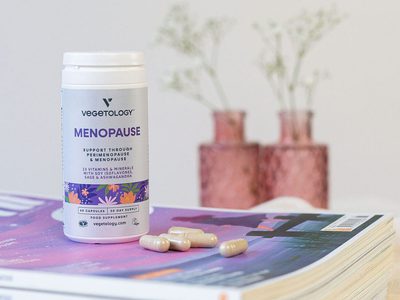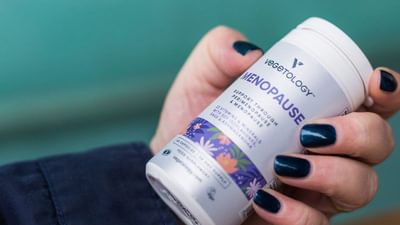Menopause is often spoken about, and usually perimenopause is mentioned too as it affects approximately 13 million people in the UK currently.
Perimenopause is considered to be the first stage of menopause and it has many symptoms similar to menopause, but periods have not yet stopped.

What is the perimenopause?
Part of the perimenopausal experience can see monthly cycles begin to slow down, leading to irregular bleeding as the ovaries gradually stop working and producing eggs to be fertilised. If you’re going through perimenopause then you might find that you have irregular periods meaning you miss your usual monthly cycle, or have unusually light or heavy periods. The frequency of your periods can be disrupted, meaning you may have one every two or three weeks, or you may not have one for months at a time.
This can be a confusing and overwhelming time as the body changes, but perimenopause is a natural process that female bodies go through as part of their ageing. It causes physical and emotional symptoms, and whilst it does not need treatment, it can help to lessen symptoms. Treatment for perimenopause includes hormones, antidepressants and lifestyle changes to alleviate the symptoms.

What are the symptoms of perimenopause?
Menopause and perimenopause is often defined by how it makes you feel, as the symptoms can be difficult to manage and feel overwhelming at times. Perimenopause is seen to end and menopause begins when you have not had a period for 12 months.
Perimenopausal symptoms can begin as early as in our 20s and last for years before the body enters menopause, as well as continuing during that life stage too. Some women report seeing some of these symptoms as early as in their 20s, but not experiencing full menopause until much later in life so it doesn’t necessarily mean that menopause will be imminent and the symptoms are part of the body’s natural evolution and nothing to be ashamed or scared of.
The symptoms of perimenopause can hugely vary from person to person and there is no ‘one size fits all’ list, but symptoms can include:
● Irregular periods.
● Vaginal dryness.
● Hot flashes.
● Chills.
● Night sweats.


● Sleep problems.
● Mood changes.
● Weight gain and slowed metabolism.
● Thinning hair and dry skin.
● Loss of breast fullness.
● Problems with memory, otherwise known as ‘brain fog’.
● Joint stiffness, aches and pains.
● Reduced sex drive and libido.
● Recurrent urinary tract infections (UTIs), such as cystitis.
If you are concerned about any of these symptoms, then seek help or advice from your doctor. Your doctor can advise on treatments and any support you might need during perimenopause and menopause.
How can I stay healthy during perimenopause?
Staying healthy during perimenopause isn’t just about what you eat or the vitamins you get, and in fact means leading a balanced and healthy lifestyle overall.
Whilst taking supplements, eating well and looking after yourself can help, there are also clear ways to keep the body healthy during the perimenopause:
It’s important to remember that every woman's experience of perimenopause is unique, and what works for one person may not work for another. So it’s essential to listen to your body, seek professional guidance and make adjustments to your lifestyle based on your needs and what works for you.
What supplements should I take during perimenopause?
During perimenopause, which is the transitional phase leading to menopause, hormonal changes can bring about various symptoms. It's important to note that individual needs can vary, and it's always recommended to consult with a healthcare professional to determine the most appropriate supplements for your specific situation.
Here are some supplements that are commonly considered during perimenopause: